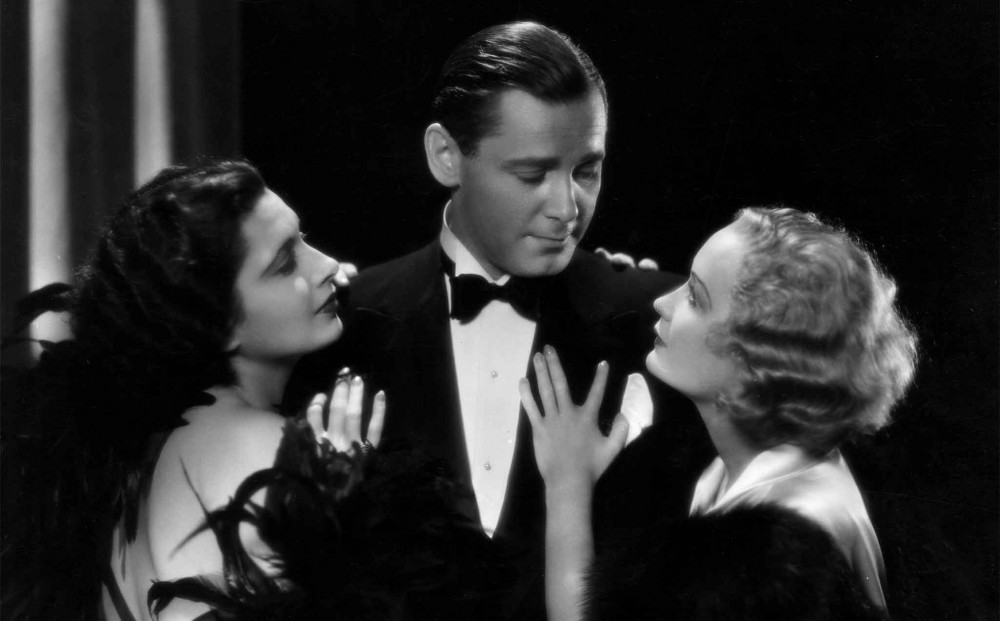TROUBLE IN PARADISE
5:20 9:10
Sunday, June 4
Directed by Ernst Lubitsch
(1932) “Baron, I have a confession to make. You are a crook.” Herbert Marshall and Miriam Hopkins share champagne, caviar, and moonlight, while debonairly picking each other’s pockets, but Kay Francis proves rival as well as mark. 35mm. Approx. 83 min.
Reviews
“A LUSTROUS MASTERPIECE. Nowhere was [‘The Lubitsch Touch’] more in evidence. I call this his chef-d’oeuvre for the way he makes everything — the performances, Samson Raphaelson’s gossamer yet biting script, Victor Milner’s shimmering cinematography, Hans Dreier’s beyond-Deco sets, and Travis Banton’s sensually bias-cut gowns — coalesce into pure, uproarious, and excruciatingly sexy perfection. Cello-voiced Herbert Marshall, as an international jewel thief, shows that Hollywood possessed a seductive, gentlemanly master of high comedy well before Cary Grant, while Miriam Hopkins and Kay Francis, the first hilariously staccato in her schemingly avaricious ways, the second more luxuriously languid and legato, are a breathtaking study in contrasts.”
– David Noh, Gay City News
“In Trouble in Paradise, Edward Everett Horton eyes Herbert Marshall suspiciously during a cocktail party. He tells himself that he’s seen this fellow somewhere. Clearly, Horton will remember at a certain moment, and with nine out of ten filmmakers—lazy bunch that we are—what do we almost always do? We show the fellow asleep in bed; all of a sudden he wakes up in the middle of the night, slaps his forehead: ‘That’s it! Venice! The dirty bum!’ That was not Lubitsch’s way. He worked like a dog, bled himself white, died twenty years too early. Lubitsch shows us Horton smoking a cigarette. Visibly wondering where he could have met Herbert Marshall before, he takes a last draw on his cigarette, crushes it in a silver ashtray shaped like a gondola… a shot of the gondola ashtray… we return to Horton’s face… he gazes at the ashtray… a gondola… Venice. My god! Horton finally understands! Bravo! And the audience rocks with laughter.”
– François Truffaut
“[LUBITSCH] ATTAINED AN UNSURPASSABLE PERFECTION. A game of deceptions and surprises weaving intricate patterns on the themes of theft and seduction and complicity. No Lubitsch film more fully realizes his wish to make a film like a piece of music, in this instance a sonata of Mozartean grace… Herbert Marshall and Miriam Hopkins inhabit a sphere of sophisticated superiority and presumed moral license. They make their own rules amid a society whose trivial restrictions and regulations constantly impinge on their need to assert their freedom of action.”
– Geoffrey O’Brien, The New York Review of Books
“ONE OF LUBITSCH’S BEST AND MOST RISQUÉ COMEDIES.”
– Film Journal
“There is order and morality in Lubitsch’s immorality… The movie achieves the rare feat of making both women seem entirely worthy of the hero’s affections.”
– Farran Smith Nehme, The Village Voice
“When I was small I liked to go to the movies because you could find out what adults did when there weren’t any children in the room. As I grew up that pleasure gradually faded; the more I knew the less the characters seemed like adults. Ernst Lubitsch’s ‘Trouble in Paradise’ reawakened my old feeling. It is about people who are almost impossibly adult, in that fanciful movie way – so suave, cynical, sophisticated, smooth and sure that a lifetime is hardly long enough to achieve such polish. They glide.”
– Roger Ebert
“Spins a wonderful, sophisticated tale in praise of immorality, money and sex.”
– Time Out (London)
“The masterpiece of American sophisticated cinema.”
– Leslie Halliwell
“The last word in modernistic design”
– Theodore Huff

